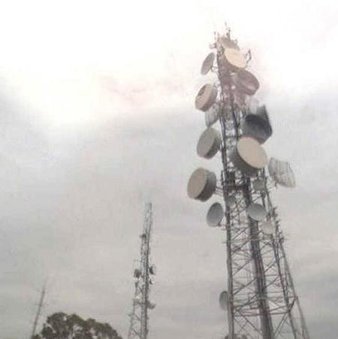I spent the five happiest years of my life in a morgue. As a forensic scientist in the Cleveland coroner’s office I analyzed gunshot residue on hands and clothing, hairs, fibers, paint, glass, DNA, blood and many other forms of trace evidence, as well as crime scenes. Now I'm a certified latent print examiner and CSI for a police department in Florida. I also write a series of forensic suspense novels, turning the day job into fiction. My books have been translated into six languages.
With hairs, you can’t identify one to a specific person with only microscopic examination—the main reason it is hardly used these days, and typically only as screening to decide to do DNA analysis. Then DNA analysis is actually done on the skin cells clinging around the root, because the actual hair doesn’t have any nuclear DNA. It does have mitochondrial DNA though few labs can do that.Fiber analysis is also rarely done these days because it can’t be positively identified to an article of clothing, or is it possible (usually) to find out how many of that article had been manufactured or sold and who they were sold to, etc. An analyst can say the fiber is consistent with coming from that article but that’s all. Unless there is a ‘jigsaw match’, a section of the material found that can be fit back into the article of clothing like a puzzle piece.Hope that helps!
We work 40 hours a week but one of us will be on call during the rest of the time, when no one is at work, 24/7/365.
I’ve never had someone ask for transcripts at an interview, and I think it would be a little unreasonable for them to expect you to have them with you without warning.It will be generally like any other interview. When they ask what experience you have in forensics be sure to mention specific tests and techniques you’ve done, like superglue, crime scene reconstruction, the AFIS system, etc.
Wow, that's kind of hard, possibly because we in forensics don't 'solve' cases, the detective does. We provide them the information that hopefully solves or helps to solve the case. Some that took a surprisingly short time: we had a would-be rapist drop his wallet at the scene. I recently had a burglary/arson/car theft in which I had some decent fingerprints, but they didn't match anyone in our city database. The detective had no leads at all and no idea where the car was. Then as is routine I checked the prints against the neighboring city's database, and got a hit, they questioned the suspect and he confessed. In my small town we often have the killer waiting at the scene and telling us that they did it. However, after sitting in jail for a while they may decide they were justified, so the legal trial may not even begin until 2-3 years later. One that took longer: we had the brutal double murder of a woman and a young girl in 1989. Despite a copious investigation of every friend, acquaintance, fingerprint or hair involved, no leads. Then two years ago a man was arrested on a relatively minor charge and his DNA was searched and hit on the unsolved murder. Hope that helps!
Radio program/music director
 What's your take on the whole Don Imus racism scandal?
What's your take on the whole Don Imus racism scandal?
Hospice Nurse
 Which terminal diseases are the most painful to watch people go through?
Which terminal diseases are the most painful to watch people go through?
Bartender
 How often would you date customers?
How often would you date customers?
As I’m not a toxicologist, I’m afraid I’d have no idea. Sorry!
Again, titles and job requirements aren't uniform, so the only way to know is to call the crime labs in your area or whereever you might be interested in working and ask them. At the coroner's office we had to have at least a bachelor's in a natural science (this was before they had forensic science majors). At the police department where I am now, they only require a high school diploma but you get more points in the interviewing process for having a four year degree, so we all have one. You can also go on the websites for professional organizations such as the American Academy of Forensic Sciences and check out their job vacancy postings and see what the various positions require. Good luck.
That completely depends on what kind of evidence and what analysis we’re doing.
-OR-
 Login with Facebook
Login with Facebook (max 20 characters - letters, numbers, and underscores only. Note that your username is private, and you have the option to choose an alias when asking questions or hosting a Q&A.)
(A valid e-mail address is required. Your e-mail will not be shared with anyone.)
(min 5 characters)
By checking this box, you acknowledge that you have read and agree to Jobstr.com’s Terms and Privacy Policy.
-OR-
 Register with Facebook
Register with Facebook(Don't worry: you'll be able to choose an alias when asking questions or hosting a Q&A.)